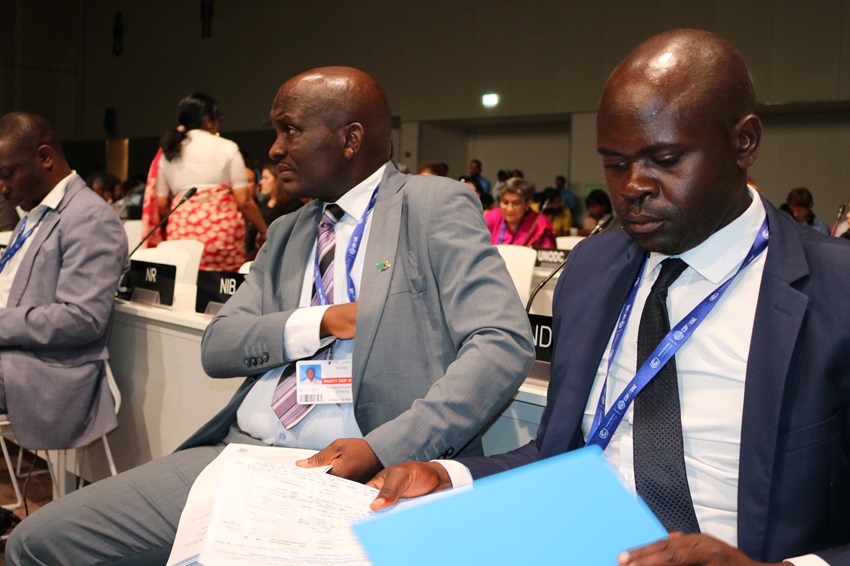
In a historic moment, the draft decision on the Loss and Damage Fund has been adopted in the opening plenary of COP28.
COP28 President, Dr. Sultan Al Jaber gaveled the first major milestone of COP28, delivering a historic agreement to operationalize the Fund which is aimed at assisting developing countries that are particularly vulnerable to adverse effects of climate change.
“The hard work of many people over many years, has been delivered in Dubai.” Dr. Al Jaber said, saying “the speed at which the world came together, to get this fund operationalized within one year since Parties agreed to it in Sharm El Sheikh is unprecedented.”
The Fund was agreed upon at COP27 held in Sharm El Sheikh, Egypt, and became operational today following the agreement reached by parties. The modalities for the operationalisation were discussed and agreed by the Transitional Committee (TC) which was constituted.
The TC held five meetings to resolve the issues and produce a draft decision report that has been adopted, effectively operatioalising the fund.
That meeting generated recommendations on implementing the Fund, including the provision of essential grant-based support to countries especially impacted by climate losses and damages.
Loss and Damage is essential even if the world meets climate mitigation goals because a “locked-in” level of warming already impacts particularly vulnerable communities being hit by extreme weather events, such as storms and floods, reduced agricultural productivity, and rising sea levels among others.
Immediately after the historic decision was adopted, the UAE announced a commitment of USD 100 million to the Fund, which aims to provide financial assistance to countries at extreme risk from climate change, to support climate change mitigation and recovery.
Other countries that notable commitments included Germany, which committed USD 100million, the UK, which committed £40 million for the Fund and £20million for other arrangements, Japan, which contributed USD 10million, the U.S., which committed USD 17.5 million and the European Union committing USD 145.6 million to bring total commitments to over USD 400 million.
Reacting to the decision, Zambia, as Chair of the African Group of Negotiators on Climate Change (AGN) hailed the adoption and urged other developed countries to commit more resources as the fund requires colossal sums of money to adequately support developing countries.
Zambia’s Minister of Green Economy and Environment, Eng. Collins Nzovu said: “Within 20 minutes of your Presidency, you have not only operationalized the fund but also capitalised it by getting pledges, unprecedented and shows COP28 Presidency mean business.
This development will help to start rebuilding trust between developed and developing parties. We therefore call upon other developed countries to commit more money as the fund has to be established at scale.”
Meanwhile, the AGN has insisted that adaptation remains a key priority for the continent and a critical component in the implementation of the Paris Agreement.
COP28 is mandated to complete the work undertaken for the past two years under the Global Goal on Adaptation (GGA), and the launch of the framework.
“The outcome on the GGA is the most important outcome for Africa at COP28,” said Nzovu. “At the heart of the framework is the development of qualitative and quantitative dimensional and thematic science-based targets that are measurable and time-bound to help us achieve the objective of the goal on adaptation. Further, the means of implementation, including finance, capacity building and technology transfer will be a critical component of the GGA framework.”
The Adaptation gap report has revealed widening adaptation finance gap, reaching an estimated US366 billion per year. The report further notes that climate finance to developing countries decreased by 15% in 2021.










